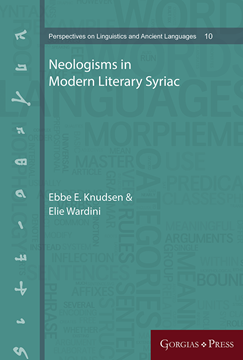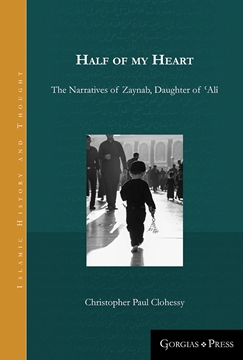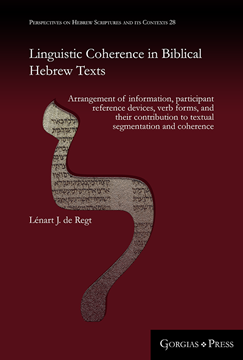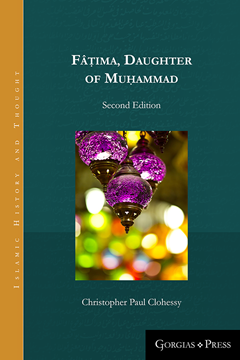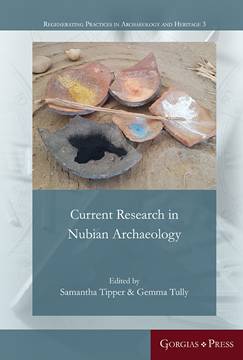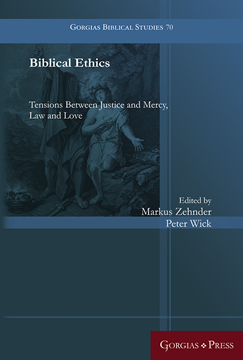Neologisms in Modern Literary Syriac
ISBN: 978-1-4632-3936-7
This book is the culmination of the Turabdin Project, the goal of which is to monitor the development of Modern Literary Syriac from the 1980s to the present. The approach is descriptive and contrastive relative to the Classical language, significant differences between Modern Literary Syriac and Classical Syriac are noted. The main focus is on neologisms and new developments in the lexicon.
$114.95 (USD)
Half of my Heart
The Narratives of Zaynab, Daughter of ʿAlî
Series: Islamic History and Thought 13
ISBN: 978-1-4632-3937-4
As Abû ʿAbd Allâh al-Ḥusayn, son of ʿAlî and Fâṭima and grandson of Muḥammad, moved inexorably towards death on the field of Karbalâʾ, his sister Zaynab was drawn ever closer to the centre of the family of Muḥammad, the ‘people of the house’ (ahl al-bayt). There she would remain for a few historic days, challenging the wickedness of the Islamic leadership, defending the actions of her brother, initiating the commemorative rituals, protecting and nurturing the new Imâm, al-Ḥusayn’s son ʿAlî b. al-Ḥusayn b. ʿAlî b. Abî Ṭâlib, until he could take his rightful place. This is her story.
$114.95 (USD)
Linguistic Coherence in Biblical Hebrew Texts
Arrangement of information, participant reference devices, verb forms, and their contribution to textual segmentation and coherence
ISBN: 978-1-4632-3938-1
This monograph explores the distinct ways in which four discourse devices participate in establishing coherence in Biblical Hebrew texts. Bringing together linguistics, literary analysis, pragmatics, and translation methodology, de Regt demonstrates how a thorough understanding of the functions of devices of linguistic coherence beyond the sentence level should be integrated into biblical translation methodology and Biblical Hebrew pedagogy.
$114.95 (USD)
Fâṭima, Daughter of Muhammad (second edition - paperback)
Second Edition
Series: Islamic History and Thought 10
ISBN: 978-1-4632-3939-8
The only child of Muhammad to survive him, Fâṭima was from early times taken up by Shî’a Islam, for whose adherents she is the virgin mother, the heavenly intercessor with untold power before God’s throne, and the grieving mother of al-Husayn, the Shi’a's most important martyr. During her life she was impoverished and weak, neglected, marginalized, and divested of justice: but her reward in heaven comprises incalculable riches, all those in heaven will bow their heads to her, and her company will be the angels and the friends of God. Here, for the first time, her story is told.
$65.00 (USD)
Current Research in Nubian Archaeology
Edited by Samantha Tipper & Gemma Tully
ISBN: 978-1-4632-3940-4
A compilation of the latest scientific and archaeological research carried out by scholars working in Sudan, providing an insight into the daily life and health of ancient Nubians.
$114.95 (USD)
Biblical Ethics
Tensions Between Justice and Mercy, Law and Love
Edited by Markus Zehnder & Peter Wick
Series: Gorgias Biblical Studies 70
ISBN: 978-1-4632-3945-9
Biblical theology is confronted with tensions between love and justice. There are sometimes attempts to avoid these tensions by dissolving one side of the opposing concept. One such attempt is to identify love and mercy as the essence of Christian theology, overcoming law and reciprocal justice. However, such a dissolution is irresponsible not only ethically, but also theologically—as the discussion in a number of the studies collected in the present volume will demonstrate.
$114.95 (USD)
